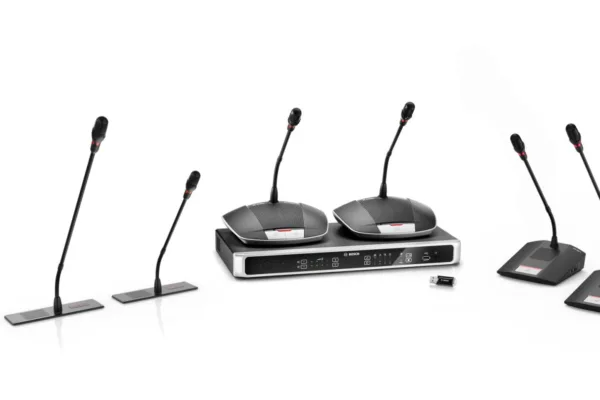The Philippine Society of Oncologists (PSO), in collaboration with the cancer advocacy group Hope From Within, recently hosted a health forum entitled “Synergizing Strengths and Collaborative Efforts to Drive Progress and Innovation in Cancer Care.”

The event brought together leading experts from the medical field, local government units (LGUs), and healthcare providers, all with the shared goal of addressing the ongoing challenges in cancer detection, treatment, and prevention in the Philippines.
Through this forum, the conversation emphasized the importance of innovation, collaboration, and the strategic use of technology to improve cancer care outcomes for Filipinos.
In the Philippines, cancer has consistently ranked among the top three leading causes of death. The disease places an immense burden on patients and their families, with treatment costs reaching over Php1 million, in certain cases.
PSO shares benefits and innovations in early detection
One of the most pressing issues discussed was the significance of early cancer detection. Dr. Hardee Luna, President of PSO, highlighted the ACT Now Prime Care for Breast Cancer program as a key initiative. The program leverages community education and training to promote self-examination and improve awareness of screening services.
Early detection has been proven to increase survival rates significantly, and this initiative underscores the role of technology in broadening access to diagnostic tools.
To further these efforts, PSO, in collaboration with the Quezon City government, introduced a mobile clinic for breast and cervical cancer screenings. This mobile bus clinic offers free screenings in underserved areas, providing services such as breast exams and acetic acid tests. These mobile units demonstrate the power of bringing healthcare technology directly to communities, ensuring that those without access to traditional medical facilities can receive critical preventive care.
As Dr. Luna stated, “Our goal is to shorten the patient journey from detection to treatment, aiming to reduce the timeline to less than 60 days.” With plans to expand the mobile clinic program, there is hope that more Filipinos will benefit from early cancer detection and timely treatment.
The role of technology in prevention

PSO President Herdee Luna (with mic) and other experts address media questions during the health forum titled “Synergizing Strengths and Collaborative Efforts to Drive Progress and Innovation in Cancer Care.”
Prevention was another key focus at the forum, with technology playing an increasingly critical role. Dr. Maricar Limpin, from the organization Action on Smoking & Health, discussed the importance of smoking cessation in reducing cancer risk.
Smoking is a leading cause of lung and other cancers, and technological innovations have enabled the development of more effective cessation programs. However, Dr. Limpin pointed out that the challenge lies in raising awareness and making these programs accessible to a broader audience.
Cancer treatment often comes with overwhelming financial costs, creating additional barriers for many patients. Recent legislative actions have expanded financial support mechanisms, including through the PhilHealth Z Benefits package, which covers various types of cancer treatments.
Notably, financial support for breast cancer treatment has seen a significant increase, with coverage rising from ₱100,000 to ₱1.4 million. This boost enables more Filipino patients to access life-saving treatments without bearing the full financial burden, which can often be prohibitive.
Breakthroughs in diagnostics and personalized treatment
Another pivotal advancement discussed at the forum was the introduction of biomarker testing in the Philippines.
Hi-Precision Laboratories, in partnership with pharmaceutical companies, now offers biomarker tests that allow doctors to tailor cancer treatments to each patient’s genetic and molecular profile. These tests include EGFR mutation testing for lung cancer and BRCA testing for breast and ovarian cancer, among others.
Previously, patients had to send samples abroad for biomarker testing, leading to high costs and long wait times. Now, with the local availability of these tests, patients can receive faster and more affordable diagnostics, paving the way for more personalized, effective treatment plans.
“Biomarker testing represents a shift toward more targeted cancer therapies, improving treatment outcomes significantly,” a spokesperson from Hi-Precision Laboratories explained. This technological advancement is a game-changer, offering hope to cancer patients who require precise interventions based on their unique conditions.
Expanding localized cancer care programs
The implementation of the National Integrated Cancer Control Act (NICCA) has been crucial in providing more comprehensive cancer care across the country. Cities like Quezon City and Taguig have set benchmarks in localized cancer care initiatives. For instance, Quezon City’s Integrated Cancer Control Ordinance facilitates coordinated patient navigation, ensuring that cancer patients receive consistent support from diagnosis to treatment.
Meanwhile, Taguig City’s Ating Dibdibin program offers free breast exams and mammograms, improving early detection rates and referral systems to specialized hospitals. Similar programs in Muntinlupa City have also demonstrated the importance of integrating local health offices with broader cancer control efforts.
Looking forward: Collaboration and innovation as keys to progress

Experts and health champions unite to emphasize that collaboration and innovation are key to cancer care
The Annual Convention Media Forum served as a rallying call for all stakeholders to continue driving innovation and expanding access to cancer care. By leveraging technological advancements and fostering partnerships, the Philippines is making significant strides in transforming the landscape of cancer care.
As the forum concluded, the message was clear: through collaboration and innovation, the country can provide more equitable, accessible, and effective cancer care. Now is the time to act—together, we can reshape the future of cancer care in the Philippines.
For more information on these initiatives and ways to get involved, visit the Hope From Within website, a platform dedicated to improving cancer care for Filipinos.






